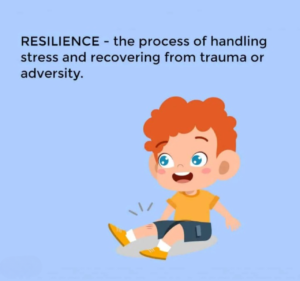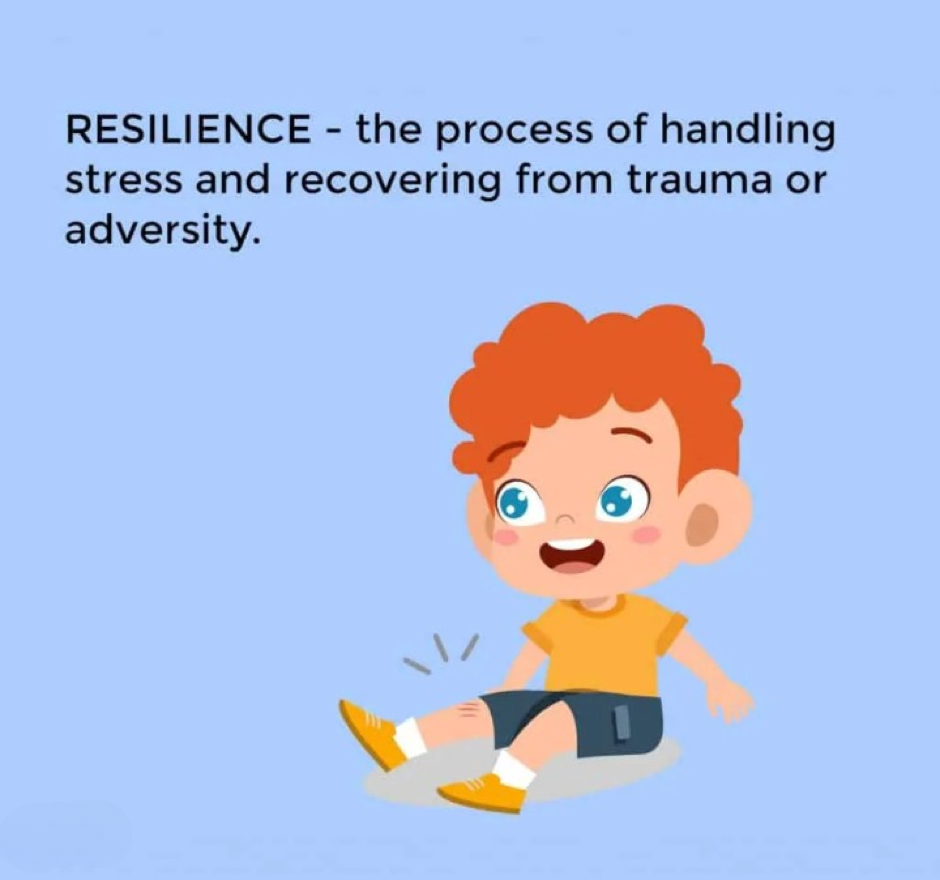Although we often picture childhood as a pleasant time, youth is not a sufficient Défense realize against the difficulties, traumas, and emotional wounds that many youngsters experience. Children may be expected to deal with issues like adjusting to a new classroom or online learning, peer bullying, or even difficulties at home. Childhood may be anything but carefree when the uncertainties that come with growing up in a complex environment are added. Resilience skills enable one to thrive in spite of these difficulties.

Every child has remarkable abilities. There is no success, happiness, or “doer of exceptional things” genes. All of them have the capacity to be happy and terrific, but what that means for each child will vary. They will encounter difficulties along the way, and we cannot change it. Giving them the necessary abilities will enable them to overcome these difficulties without ever being broken. We can increase their fortitude. Being resilient means having the ability to overcome stress, challenges, tragedies, trauma, or adversity. Children that are resilient are braver, more inquisitive, more adaptable, and better equipped to expand their horizons.
What is resilience?
Resilience is the ability to “bounce back” from hardships and setbacks in life. When starting kindergarten or a new school, moving to a new home, or welcoming siblings into the family, children may encounter difficulties and obstacles. Serious occurrences like bullying, family dissolution, illness, or death can also be included. Over time, through experience, children develop resilience. Maintaining a kind, encouraging relationship with your child will help them learn skills and build resilience.
Resilience for children
Children that are resilient can bounce back more rapidly from setbacks and resume living their lives. Additionally, when kids succeed in overcoming obstacles and challenges, it boosts their self-esteem and makes them feel more capable the next time a challenge arises. Children that are resilient are frequently adept at finding solutions and picking up new abilities. This is due to the fact that they are more eager to try again even if something doesn’t work out the first time. Resilience also helps kids realize age-appropriate that uncomfortable emotions like anxiety, sadness, disappointment, fear, or frustration typically pass quickly when things don’t go as planned. They are able to feel these emotions while being aware that they will soon be ok.
Children who are resilient are less likely to avoid issues or handle them in undesirable ways, for as by becoming defensive or violent or purposefully injuring themselves. Children who struggle to be resilient are more likely to have poorer physical and mental health than resilient kids.
Tips for building resilience in children
Connect with others
Teach your child the value of participating in and making connections with their classmates, as well as the virtues of empathy and active listening. Find ways to encourage connectedness in kids by encouraging them to communicate with friends in person, over the phone, via video chat, or through SMS. The development of a strong familial network is also crucial. Resilience is boosted and social support is provided via interpersonal connections.
Have your youngster assist others while you assist them.
Helping others can empower kids who otherwise feel helpless. Engage your child in an age-appropriate volunteer activity or seek help from others when performing chores that they are capable of handling. Talk with kids at school about how they can support classmates or students in lower grades.
Instil self-care in your children.
Teach your kid the value of fundamental self-care. This could free up more time for healthy eating, exercise, and restful sleep. Make sure your youngster has time to enjoy themselves and engage in hobbies they enjoy. Children who take care of themselves and even have fun will be more balanced and able to handle stressful situations.
Work toward your objectives.
Encourage your youngster to create reasonable goals and to take small steps toward achieving them. By setting goals, kids can concentrate on a particular task and develop the fortitude to keep going despite difficulties. For younger students, break down challenging work into manageable milestones, and for older students, recognise progress toward bigger objectives.
If you are looking for ” Best psychologist in India“, use TalktoAngel to connect with the best online therapists and online psychiatrists. TalktoAngel is a platform for Best therapists in India

